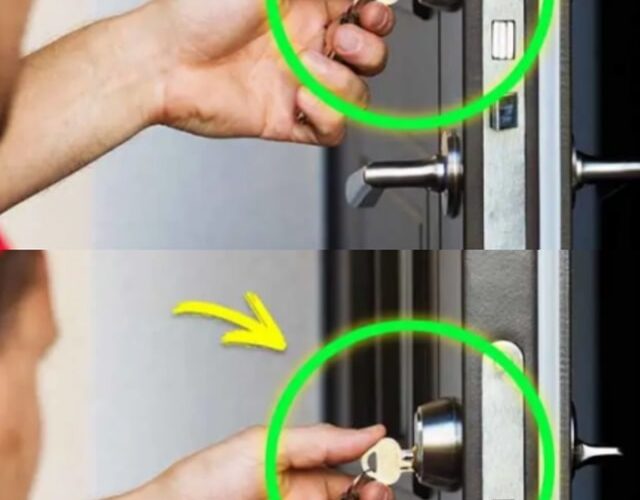ADVERTISEMENT
– **Credit Card Trick**: For standard spring-latch locks (not deadbolts), you can try inserting a credit card or another plastic card into the doorframe. Gently wiggle the card between the door and the frame to push back the latch. This may work on older or less secure locks but be careful not to damage the door or the card.
– **Use a Bump Key**: If you have experience with lockpicking (and it’s legal in your area), you may try using a bump key to unlock a simple lock.
– **Remove the Locking Mechanism**: If you have the tools and knowledge, you may be able to remove the lock or mechanism to gain access. However, this may damage the door or lock, and it’s best for experienced individuals.
—
### **3. Choose a Reputable Locksmith**
If you must call a locksmith, make sure to do your research. Not all locksmiths are trustworthy, and there are many who prey on people in vulnerable situations, charging exorbitant fees or performing unnecessary work. Here are some tips to help you find a reputable locksmith:
– **Look for Certification**: Ensure the locksmith is licensed and insured in your state or country. Many regions require locksmiths to be certified to operate legally.
– **Ask for Recommendations**: If you’re unsure who to call, ask friends, family, or neighbors for recommendations. Personal referrals are often the most reliable.
– **Check Online Reviews**: Look up locksmiths in your area and check reviews on trusted websites like Google, Yelp, or the Better Business Bureau. Pay attention to customer feedback, especially regarding reliability and fair pricing.
—
### **4. Get an Estimate Before Agreeing to Service**
Once you find a locksmith you’re considering, **always ask for an estimate** before agreeing to service. Reputable locksmiths will provide you with an upfront cost for their services, including labor and any additional fees. Beware of locksmiths who hesitate to give you an estimate or quote a “too-good-to-be-true” price over the phone.
– **Ask About Additional Fees**: Inquire about any potential extra charges, like emergency service fees, weekend or holiday pricing, or travel fees. This can help avoid surprise costs later.
– **Get Multiple Quotes**: If possible, get quotes from multiple locksmiths to ensure you’re getting a fair price.
—
### **5. Watch Out for Scammers**
Be cautious of locksmiths who:
– **Arrive in Unmarked Vehicles**: A legitimate locksmith will typically drive a vehicle with a company name or logo on it. Unmarked vehicles or those with out-of-state plates can be a red flag.
– **Give Low Quotes Over the Phone**: Some scam locksmiths give a low quote on the phone but charge far more once they arrive, citing hidden fees or additional services.
– **Offer Unnecessary Services**: Scammers might try to upsell you unnecessary services or replacements, such as installing new locks when a simple repair or unlocking was all that was needed.
—
### **6. Ask to See Identification**
When the locksmith arrives, **ask for identification** and proof of certification. A legitimate locksmith should be able to show you a business card, ID, and license before starting work. If they’re hesitant to provide this, it could be a warning sign.
—
### **7. Be Aware of Your Surroundings**
If you’re locked out in a public or unfamiliar place, be extra cautious when allowing someone to enter your space. Keep an eye on the locksmith and make sure they are only performing the agreed-upon work.
– **Secure Your Property**: If you’re at home, ensure that no other entry points (windows, side doors) are left vulnerable. While the locksmith is working, you should stay alert and avoid leaving valuables out in the open.
– **Stay in Contact with Someone**: If you’re alone, consider informing a friend or family member of your situation and the locksmith’s arrival. Sharing details like the locksmith’s name and estimated time of arrival can give you extra peace of mind.
—
### **Conclusion**
Getting locked out is never fun, but by staying calm and following these 7 simple rules, you can avoid the stress and potential scams that can accompany the situation. Whether you attempt to unlock the door yourself, carefully select a trustworthy locksmith, or ensure you’re getting an accurate estimate, taking these proactive steps will help ensure you’re not overcharged or scammed.
By practicing caution, doing your research, and being mindful of potential frauds, you can confidently handle any lockout situation and protect yourself from locksmith scams.
ADVERTISEMENT
